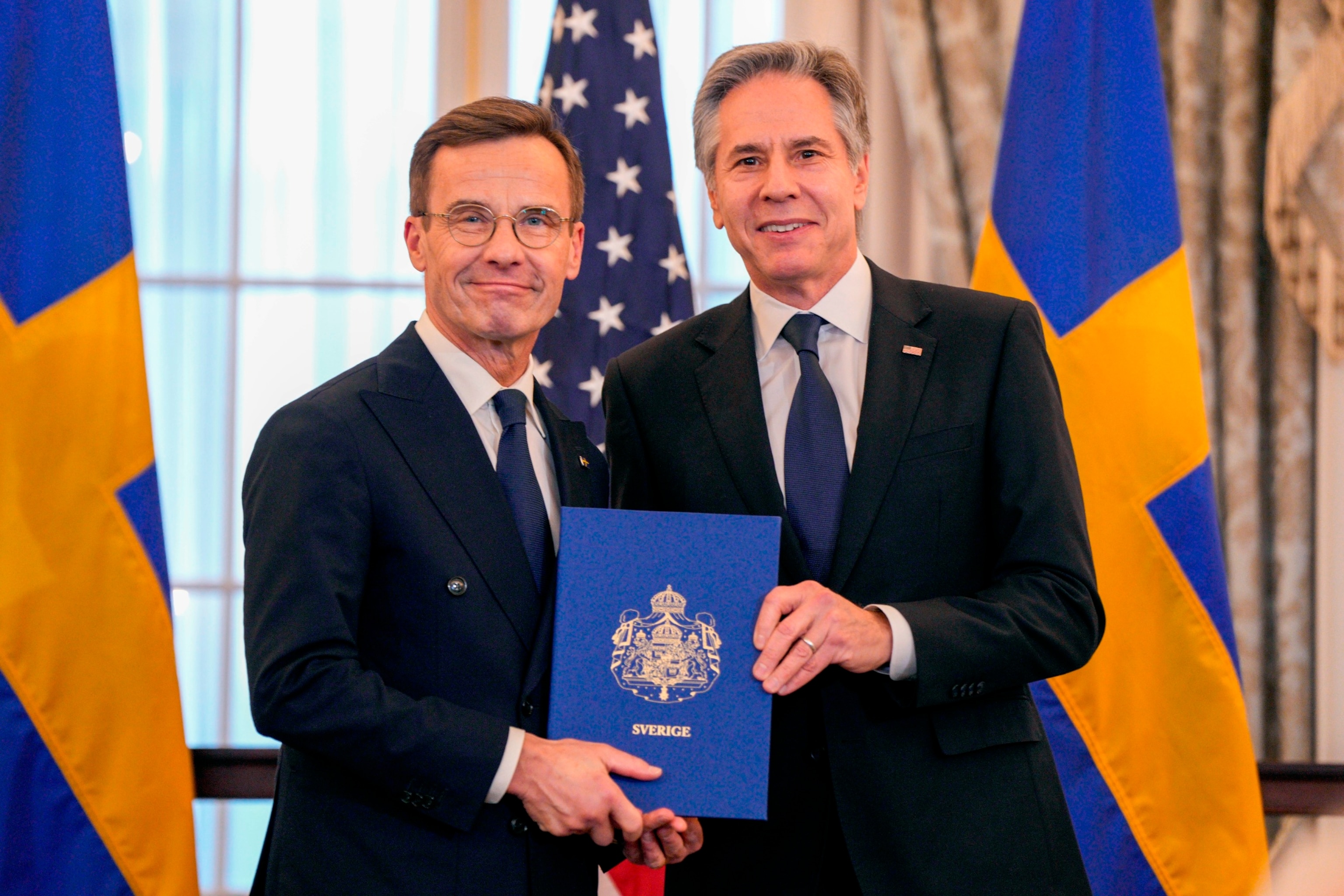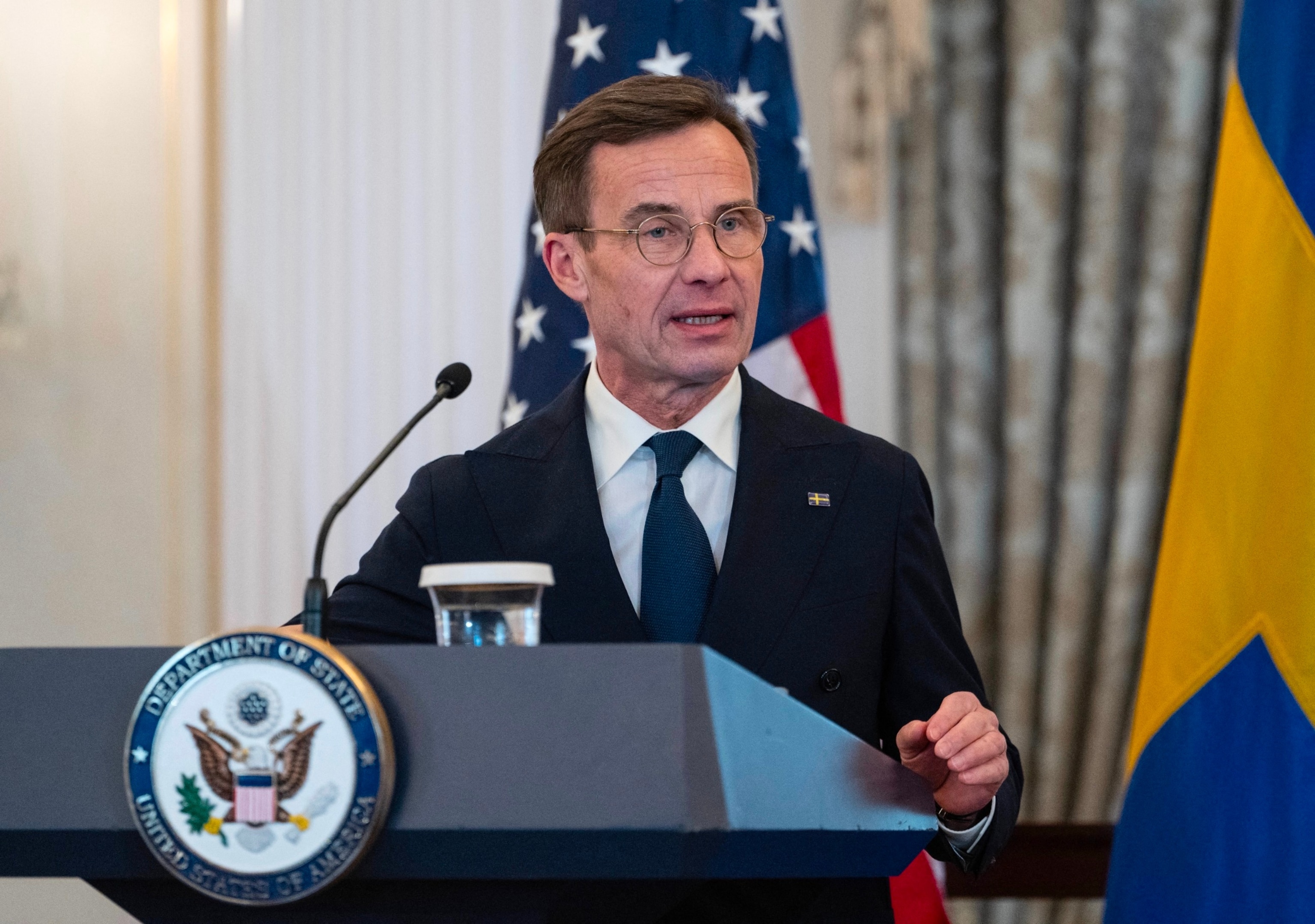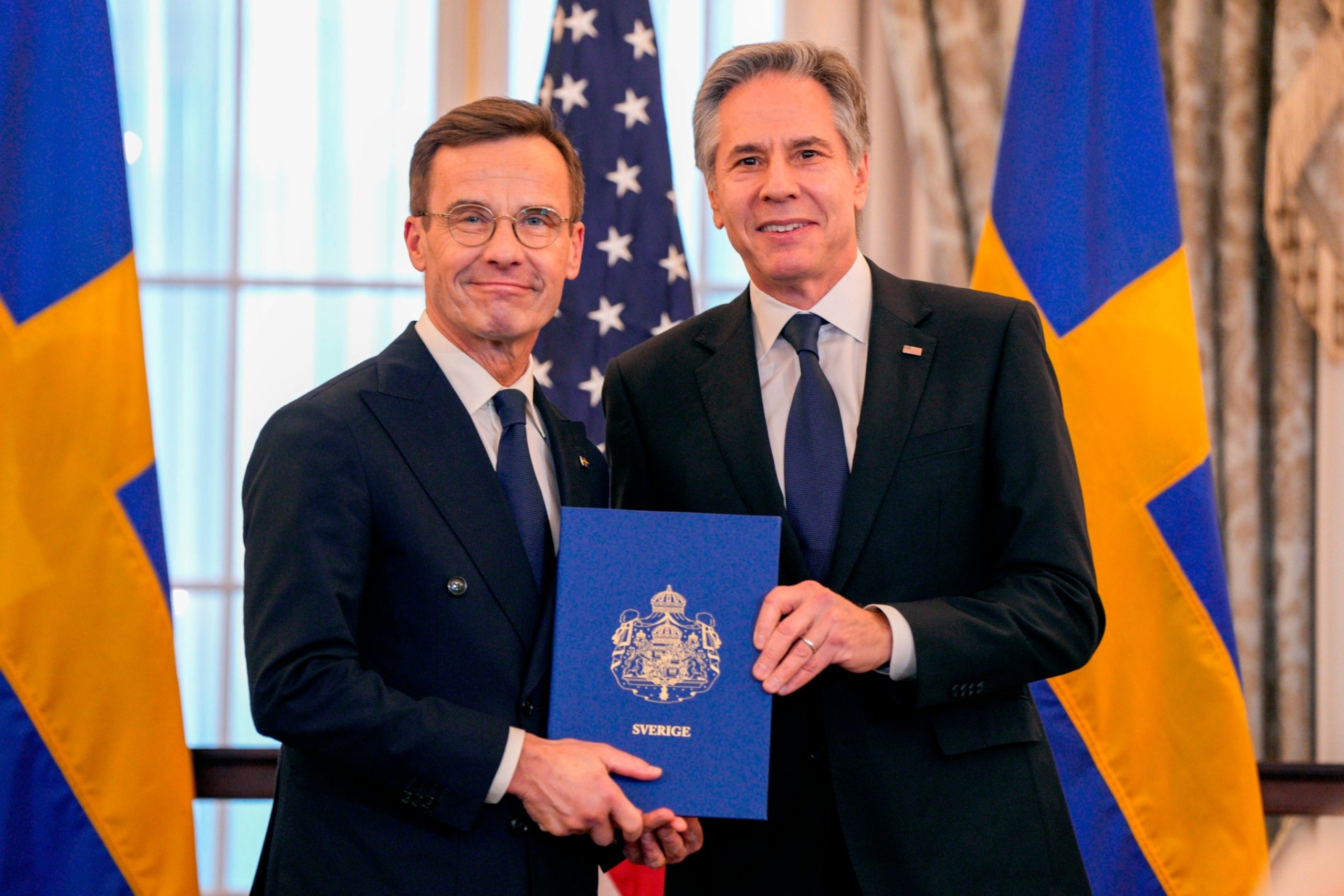Sweden’s arduous path to joining the NATO alliance came to a successful close Thursday, as the Swedish prime minister and foreign minister deposited the country’s “instrument of accession” at the State Department in Washington.
In a lighthearted ceremony, Secretary of State Antony Blinken posed for photos with Swedish Prime Minister Ulf Kristersson, with the two holding a blue folder containing the document. Blinken quipped, “Well, good things come to those who wait.”
“With receipt of this instrument of accession, let me be the very first to welcome Sweden as a party to the Washington Treaty and the 32nd member of the North Atlantic Treaty Organization,” Blinken continued.

Secretary of State Antony Blinken stands with Swedish Prime Minister Ulf Kristersson holding Sweden’s NATO Instruments of Accession at the State Department, Mar. 7, 2024, in Washington.
Jess Rapfogel/AP
Blinken remarked on Sweden’s longstanding military neutrality, and how the country was moved to end its tradition after Russian President Vladimir Putin invaded Ukraine in 2022. Sweden was called to defend democracy and recognized the existential threat Russia’s aggression presented to European nations, he said.
“None of this was easy, none of this was obvious,” Blinken said, adding it had taken “nearly two years of tireless diplomacy” to add Sweden to the alliance.

Swedish Prime Minister Ulf Kristersson speaks during the NATO ratification ceremony with US Secretary of State Antony Blinken at the US State Department, as Sweden formally joins the North Atlantic alliance, in Washington, DC, on March 7, 2024.
Andrew Caballero-reynolds/AFP via Getty Images
“Sweden is now a NATO member,” Kristersson said on X earlier. “Thank you all Allies for welcoming us as the 32nd member. We will strive for unity, solidarity and burden-sharing, and will fully adhere to the Washington Treaty values: freedom, democracy, individual liberty and the rule of law. Stronger together.”
Sweden’s membership had been slowed by objections from Turkey and Hungary. The U.S. was able to eventually incentivize Turkey by approving the sale of fighter jets to the country, and Hungary signed off on Sweden’s addition this week.
“This is a historic day,” NATO Secretary General Jens Stoltenberg said in a statement. “Sweden will now take its rightful place at NATO’s table, with an equal say in shaping NATO policies and decisions. After over 200 years of non-alignment Sweden now enjoys the protection granted under Article 5, the ultimate guarantee of Allies’ freedom and security. Sweden brings with it capable armed forces and a first-class defense industry.”
Sweden’s flag will be raised alongside those of the other 31 Allies in a ceremony at NATO headquarters in Brussels on March 11 and simultaneously at NATO commands across Europe and North America, NATO said.
-ABC News’ Ellie Kaufman contributed to this story.
After years of debate and speculation, Sweden has officially become a member of the North Atlantic Treaty Organization (NATO), marking the end of its longstanding military neutrality. This decision comes after a delayed process that has been met with both support and criticism from various factions within the country.
Sweden’s neutrality dates back to the early 19th century, when the country decided to stay out of conflicts such as World War I and World War II. This policy was further solidified during the Cold War, as Sweden sought to maintain its independence and avoid being drawn into the power struggles between the United States and the Soviet Union.
However, in recent years, Sweden has faced increasing security threats from Russia, prompting a reevaluation of its military stance. The annexation of Crimea in 2014 and the increased military activity in the Baltic Sea region have raised concerns about Sweden’s ability to defend itself without the support of a larger military alliance.
The decision to join NATO has been a contentious issue within Sweden, with some arguing that it is necessary for the country’s security and stability, while others fear that it will lead to increased tensions with Russia and compromise Sweden’s traditional neutrality. Proponents of NATO membership point to the benefits of collective defense and increased military cooperation with other member states, while critics worry about being dragged into conflicts that do not directly affect Sweden.
The process of joining NATO has been a long and complicated one for Sweden, with negotiations and discussions taking place over several years. The delay in officially becoming a member reflects the cautious approach that the Swedish government has taken in navigating this significant policy shift.
Despite the mixed reactions to Sweden’s NATO membership, it is clear that the country is taking steps to adapt to the changing security landscape in Europe. By aligning itself with one of the world’s most powerful military alliances, Sweden is signaling its commitment to defending its sovereignty and protecting its interests in an increasingly uncertain world. Only time will tell how this decision will impact Sweden’s role on the global stage and its relationships with neighboring countries.



